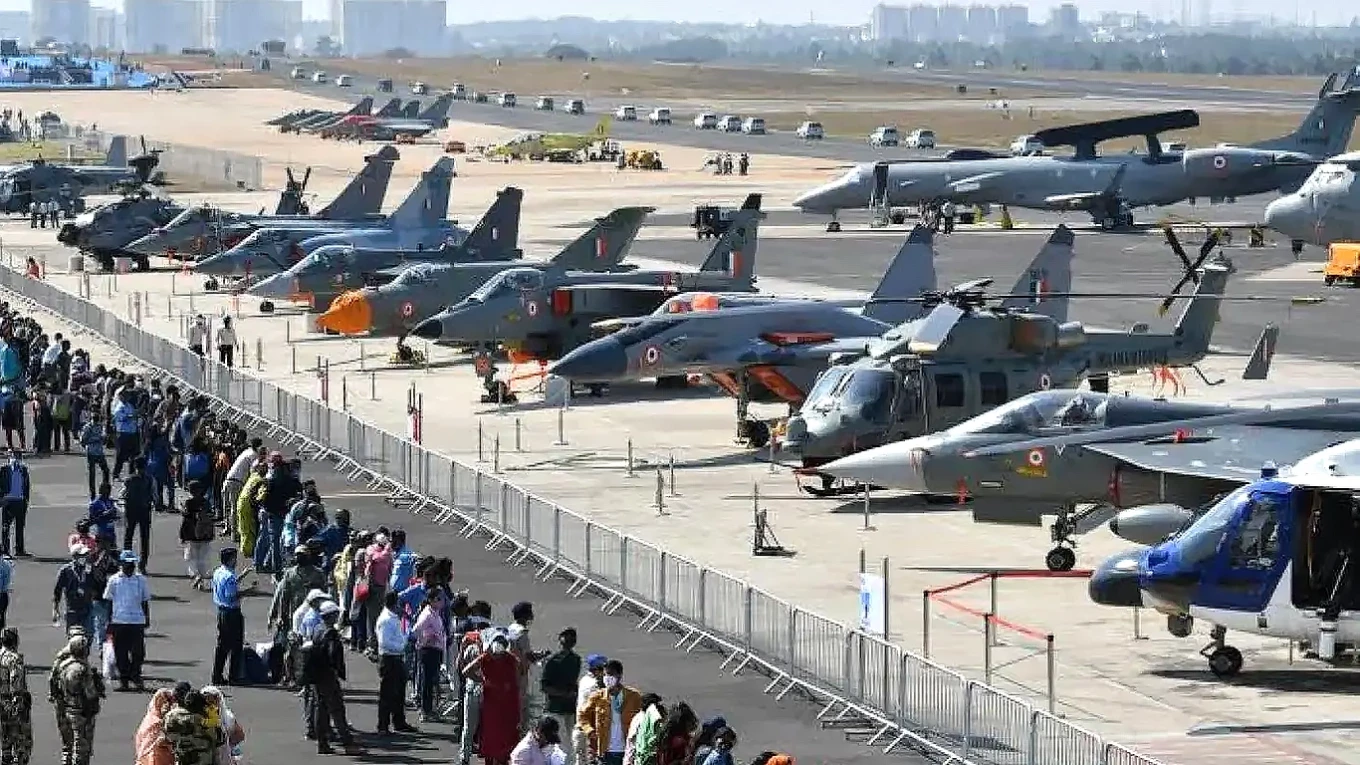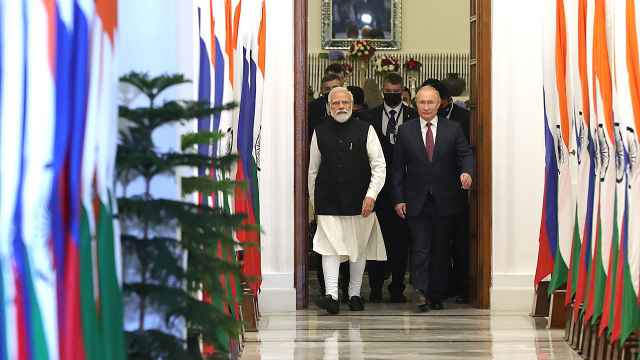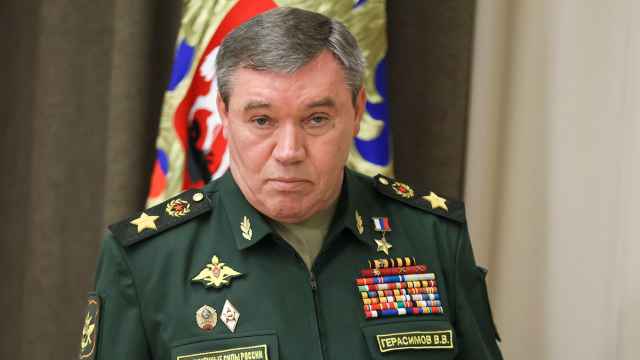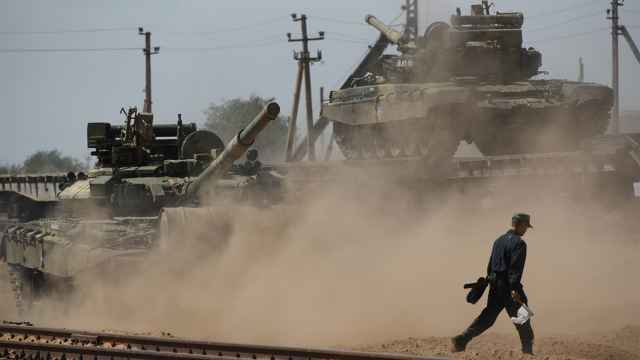Russia’s state-owned arms exporter Rosoboronexport revealed that total military exports to India have reached $80 billion, marking a significant milestone in decades of defense cooperation.
According to a statement by Rosoboronexport’s director general ahead of India’s Aero India defense expo, contracts signed between the two countries amounted to $30 billion between 1947-2005 and $50 billion between 2005-2025, underscoring Moscow’s enduring role in equipping the Indian Armed Forces.
Yet despite these figures, India’s reliance on Russian military hardware is steadily eroding as geopolitical shifts, logistical challenges and diversification efforts reshape its defense strategy.
A legacy of dependence facing disruptions
For decades, Russia has been India’s primary defense supplier, providing everything from fighter jets and submarines to missile systems and helicopters.
The Indian Air Force’s Su-30MKI fleet, the Navy’s Talwar-class frigates, and the Army’s T-90 tanks are all products of long-standing defense ties. Even recent high-profile acquisitions, such as the S-400 air defense system, have reinforced Moscow’s place in India’s military arsenal.
However, this dominance is facing mounting challenges. The war in Ukraine has severely disrupted Russian defense production, delaying deliveries of critical equipment and spare parts. Western sanctions have further constrained Moscow’s ability to fulfill export orders, forcing India to reassess the sustainability of its reliance on Russian arms.
India’s shift toward diversification
New Delhi has been gradually reducing its dependence on Moscow by broadening its military procurement sources. The acquisition of French Rafale multi-role fighter jets, American P-8i maritime patrol aircraft, and Israeli drones signals a shift towards a more balanced mix of suppliers.
Additionally, India’s “Made in India” initiative has prioritized domestic defense production, with indigenous fighter jets, missile systems and warships taking center stage in modernization plans.
This shift is not merely a response to Russia’s supply chain constraints but also a strategic recalibration. By diversifying its defense partnerships, India aims to reduce vulnerabilities, enhance technological capabilities, and avoid overexposure to any single supplier — especially one increasingly entangled in geopolitical turmoil.
The war in Ukraine: A turning point?
A 2024 report by the RE:Russia analytical platform argues that the impact of Russia’s invasion of Ukraine on its defense exports has been profound. With its own military requiring urgent replenishment, Moscow has struggled to meet export commitments. Reports of Russian equipment failures on the battlefield have also raised concerns within Indian military circles about the reliability of certain systems. At the same time, India’s continued purchases of Russian weapons have drawn scrutiny from Western allies, particularly the United States.
While Washington has refrained from sanctioning India over its S-400 deal, it has ramped up pressure to reduce engagement with Russian arms manufacturers. The promise of advanced technology transfers from the US and Europe has further incentivized India to pivot away from Moscow.
Rosoboronexport’s fight to retain market share
Despite the growing obstacles, Rosoboronexport is aggressively working to maintain its foothold in the Indian market. The company has been promoting new-generation fighter jets, submarines and air defense systems while offering joint development opportunities to keep India engaged.
The Su-57 fifth-generation fighter and advanced helicopter models are among the key products being showcased to Indian officials. One of Russia’s biggest advantages remains its willingness to share critical defense technologies— an area where Western suppliers are often more restrictive. India has traditionally favored agreements that allow for local assembly and technology transfers, making Russian offers attractive even as alternatives emerge.
A gradual, not absolute, break
As data from a 2024 SIPRI report indicates, India has been unmistakably moving away from a Russia-centric defense strategy — but the transition is far from complete. Russian-origin platforms still constitute a significant portion of India’s military assets, necessitating continued cooperation for maintenance, spare parts, and upgrades.
The key question is whether Russia can remain a competitive and reliable supplier in the face of economic sanctions, supply chain disruptions, and battlefield setbacks. While India’s long-term trajectory suggests declining Russian dominance, the process is evolving at a measured pace. As a result, Moscow’s role in India’s defense ecosystem, though diminished, is unlikely to vanish overnight.
This article first appeared in bne IntelliNews.
A Message from The Moscow Times:
Dear readers,
We are facing unprecedented challenges. Russia's Prosecutor General's Office has designated The Moscow Times as an "undesirable" organization, criminalizing our work and putting our staff at risk of prosecution. This follows our earlier unjust labeling as a "foreign agent."
These actions are direct attempts to silence independent journalism in Russia. The authorities claim our work "discredits the decisions of the Russian leadership." We see things differently: we strive to provide accurate, unbiased reporting on Russia.
We, the journalists of The Moscow Times, refuse to be silenced. But to continue our work, we need your help.
Your support, no matter how small, makes a world of difference. If you can, please support us monthly starting from just $2. It's quick to set up, and every contribution makes a significant impact.
By supporting The Moscow Times, you're defending open, independent journalism in the face of repression. Thank you for standing with us.
Remind me later.






